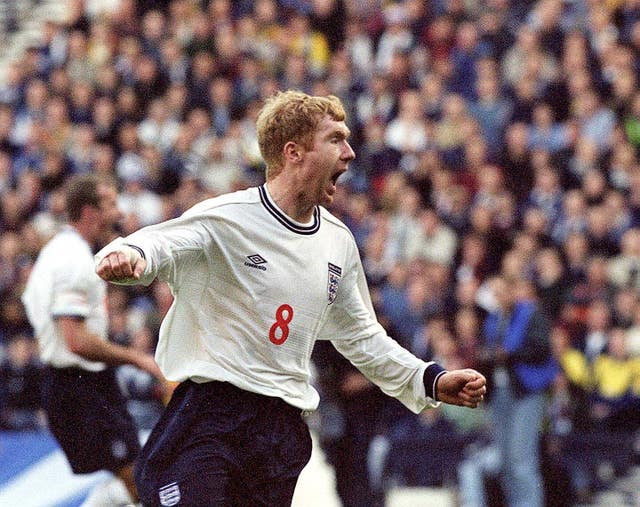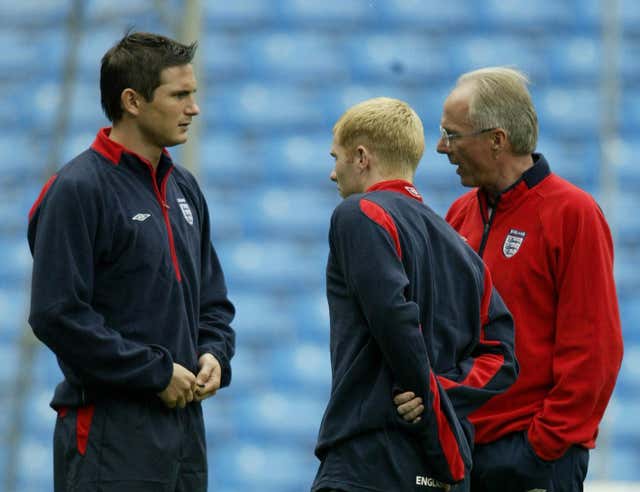
Paul Scholes announced his retirement from international football on this day in 2004.
The Manchester United midfielder, who had won 66 England caps, was just 29.
The surprise decision came weeks after England were knocked out of Euro 2004 at the quarter-final stage by Portugal on penalties.

Scholes had been a regular in the side under Sven-Goran Eriksson but often played in a wide role as the Swede tried to get him into the same midfield as Frank Lampard and Steven Gerrard.
He was less effective in that position than in the more central one he played at United and his form in the build-up to the tournament had been criticised.
“This is a decision I have not taken lightly,” said Scholes, who had scored just one international goal in the previous three years. “I have been considering retiring from international football for a while.

“I started my England career in 1997 and have enjoyed seven years of great football, playing in the best competitions, with some of the best players, under the best managers.
“Euro 2004 was fantastic but afterwards I felt the time was right for myself and my family to make it my last England appearance.”
Scholes admitted years later it was a decision he regretted. In the latter part of his United career he played and excelled in a deeper position and that was a job he felt he could have done for the national side.
He was offered the chance to return to the fold by Fabio Capello for the 2010 World Cup in South Africa but turned it down, feeling it wrong having not featured in qualifying.
“I do regret leaving England so soon,” he said. “I went back to United and my football changed. I moved back and controlled games from midfield, sitting deep.
“I ended up playing there for five or six years and, looking back, playing there from 30 to 35 was probably the most enjoyable part of my career. I finished with England too early to progress in that position.”


Comments: Our rules
We want our comments to be a lively and valuable part of our community - a place where readers can debate and engage with the most important local issues. The ability to comment on our stories is a privilege, not a right, however, and that privilege may be withdrawn if it is abused or misused.
Please report any comments that break our rules.
Read the rules here